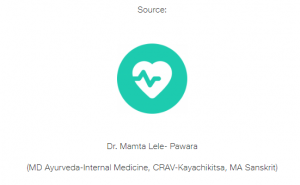[the_ad id=”6076″]
The increasing accessibility and availability of health-related information to both individuals and healthcare professionals is referred to as “democratisation of health data.” It enables individuals to take preventive measures and allows healthcare providers to intervene proactively
In the past, access to health data was often limited to medical professionals or confined within the boundaries of specific healthcare systems. However, with advancements in technology and changes in healthcare policies, there’s been a movement toward making health data more accessible, transparent, and available to a broader audience.
When health data becomes more democratised:
1. Empowering Individuals:
People have access to their health records, test results, and other pertinent health information. This access allows individuals to become more informed about their own health status, potential risks, and conditions they might face. Armed with this knowledge, individuals can take proactive measures to maintain their health, adopt healthier lifestyles, and seek appropriate medical attention when needed.
2. Promoting Preventive Healthcare:
With access to health data, individuals can actively engage in preventive healthcare measures. They can track trends, monitor vital signs, and identify patterns that might indicate potential health issues. For instance, wearable devices and health-tracking apps allow individuals to monitor their physical activity, sleep patterns, heart rate, and more. Analysing this data can aid in early detection and prevention of health problems.
3. Facilitating Proactive Healthcare Interventions:
Healthcare providers, equipped with a more comprehensive view of their patients’ health data, can intervene proactively. Analysing aggregated health data from different sources can help identify population health trends, anticipate health risks, and design targeted interventions or preventive programs. This proactive approach enables healthcare professionals to offer personalised care, identify high-risk individuals, and intervene before health issues escalate.
4. Improved Healthcare Decision-Making:
Access to a wider range of health data allows for better-informed decision-making. Healthcare providers can leverage data analytics and artificial intelligence to derive insights from large datasets, aiding in diagnosis, treatment planning, and predicting health outcomes.
However, while the democratisation of health data holds significant promise, it also raises concerns about data privacy, security, and the responsible use of this information. Striking a balance between accessibility and protecting individuals’ sensitive health information is crucial to ensure ethical and safe use of health data.
In essence, the democratisation of health data empowers individuals to become proactive participants in their own healthcare while enabling healthcare providers to deliver more personalised and timely interventions, ultimately contributing to better health outcomes and a more efficient healthcare system.

